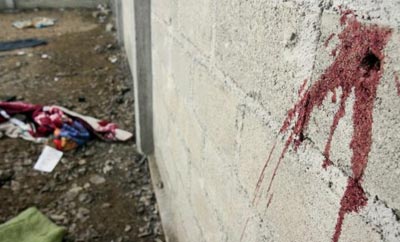Mexican officials have defended the government’s security policy following allegations of a massacre by the army in Tlatlaya, central Mexico, but their words ring hollow, particularly after this weekend’s discovery of a mass grave close to the site of a student protest.
For weeks Mexico has been gripped by allegations, originally published by the Associated Press and expanded in Esquire’s Mexico edition, that the shooting death of 22 suspected members of a criminal group in a June firefight with the army was in fact little more than a mass execution.
The confrontation was originally said to have taken place when an army patrol stumbled upon a warehouse where the gang kept kidnap victims and an arsenal of weapons. The gang began shooting, and the army returned fire. This version immediately raised eyebrows, if only because a gunfight in which 22 criminals are killed and only a single soldier is injured suggests a disproportionate response.
SEE ALSO: Mexico News and Profile
But earlier this month one of the survivors of the incident, a kidnap victim named Julia, told Esquire that the army fired first, and that only one gang member was killed in the shootout. The remaining 21 were interrogated and then executed. The soldiers altered the crime scene to support their account, she said, and pressured the survivors to support them.
After the new allegations, eight army personnel allegedly involved in the case were arrested last week. This seemingly represents a tacit admission from the government, which in other broadly similar cases has stonewalled, that the allegations have merit.
However, the reaction from the government of Enrique Peña Nieto, whose presidency has largely been based on minimizing the attention to insecurity in Mexico, has been muted. Of the eight arrested soldiers, only three have yet been charged with murder, and Mexico’s Justice Ministry has avoided labeling the incident as a mass killing. In an appearance before a Mexican congressional committee, Interior Minister Miguel Angel Osorio Chong referred to the Tlatlaya killings as an “isolated incident.”
Whether this label is accurate is highly debatable, given the Mexican authorities’ longstanding practice of downplaying unlawful aggressions by the security forces.
InSight Crime Analysis
Assuming the execution story is true, the Tlatlaya killings are perhaps the clearest example yet of military brutality.
This is hardly the first time military personnel have been accused of the gravest of crimes, from extrajudicial killings and disappearances to rape and torture. Human Rights Watch published a landmark report in 2009 detailing 17 credible allegations that the armed forces in Mexico had committed grave human rights violations, including rape and murder. The same NGO followed up with another similar report last year, in which it listed 149 cases in which state agents, including army and marine personnel, had participated in enforced disappearances.
Such allegations have become common. Last month Riodoce, for instance, detailed allegations that the marines involved in the ongoing search for cartel boss “Chapo Isidro” have committed human rights violations in Guasave, Sinaloa.
Police at every level and in virtually every corner of the country have been the subject of similar allegations. To take but one recent example, 22 police officers in Guerrero were jailed on September 29 for allegedly participating in the killing of six people during student protests. A mass grave containing the remains of 28 people was unearthed nearby on October 4, and is suspected to hold the bodies of students who went missing in the same incident.
Against such a backdrop, Osorio Chong’s protests that the killings were an isolated incident fall flat.
The interior minister also comes across as tin-eared. Osorio Chong and other cabinet members would do better to decry such crimes, pledge to increase accountability, and investigate the culture of impunity among uniformed personnel. By doing so, they would make common cause with a citizenry that is exhausted by years of violence and the government’s ham-fisted attempts to rein it in.
Instead, they downplay the gravest crimes committed against their own citizens, and betray the obligations of their office.

